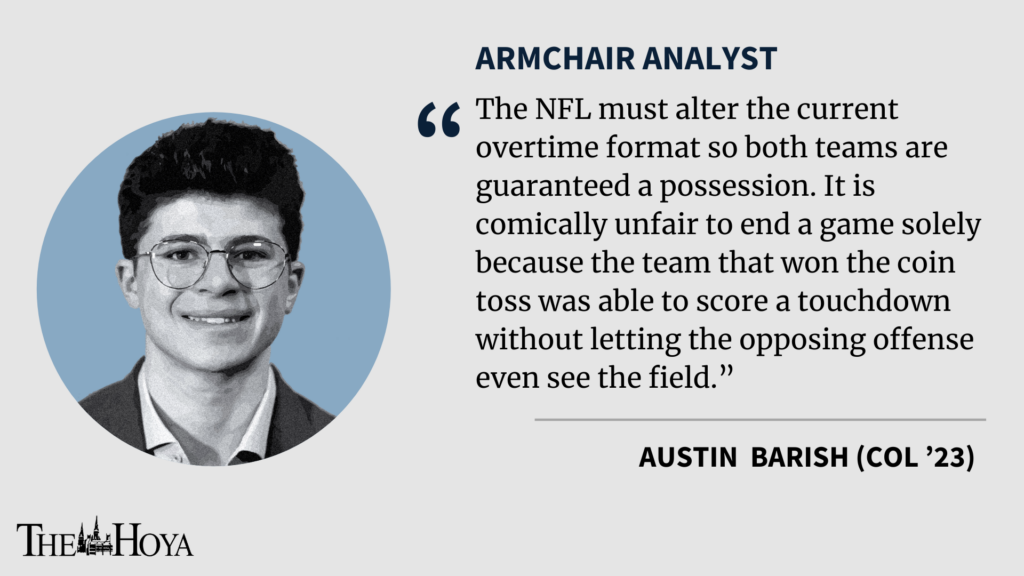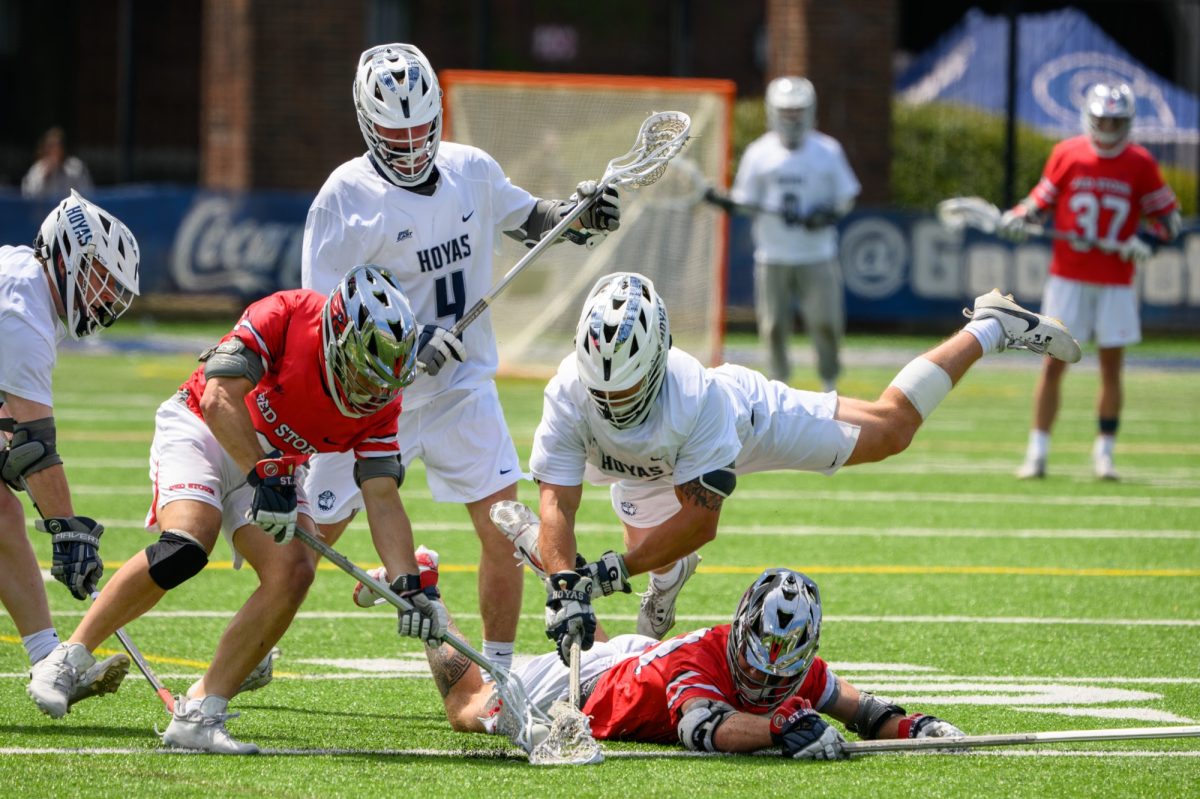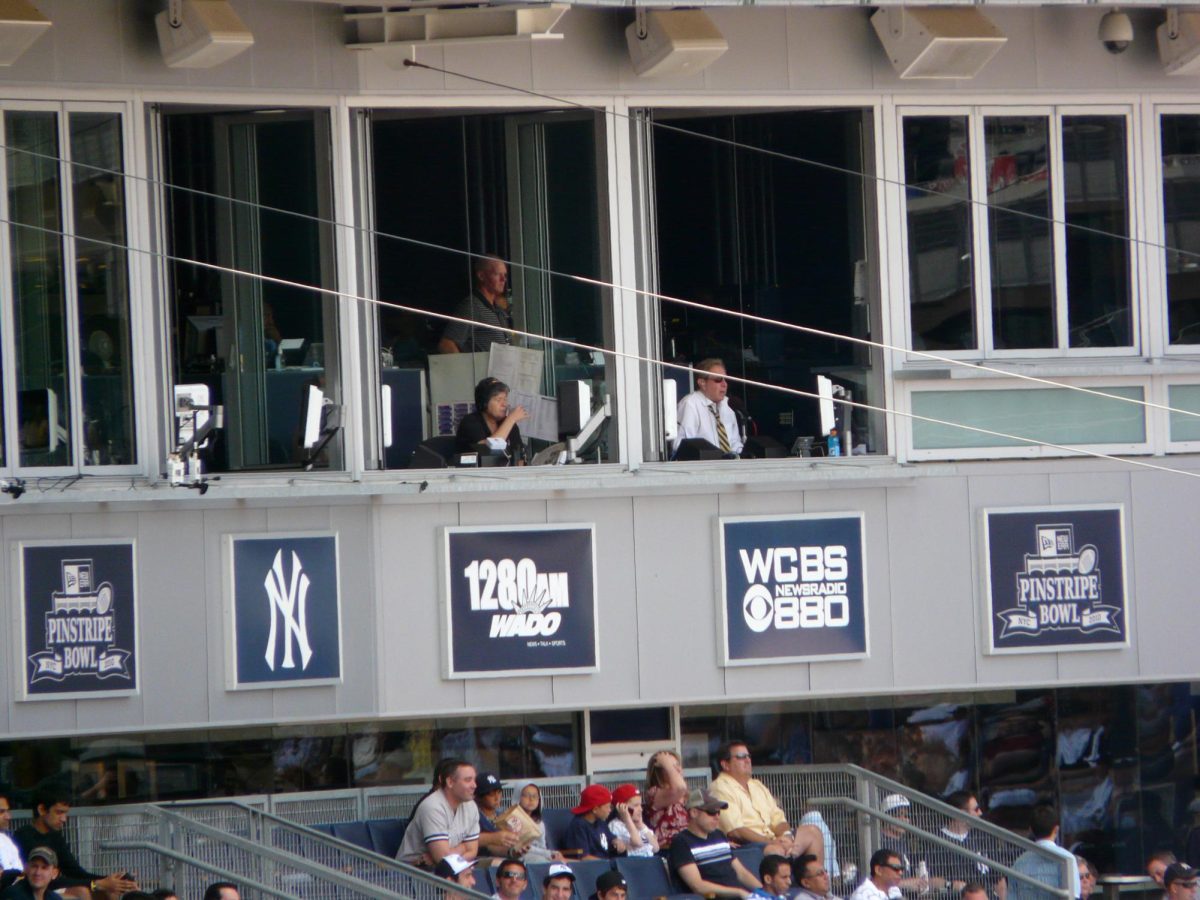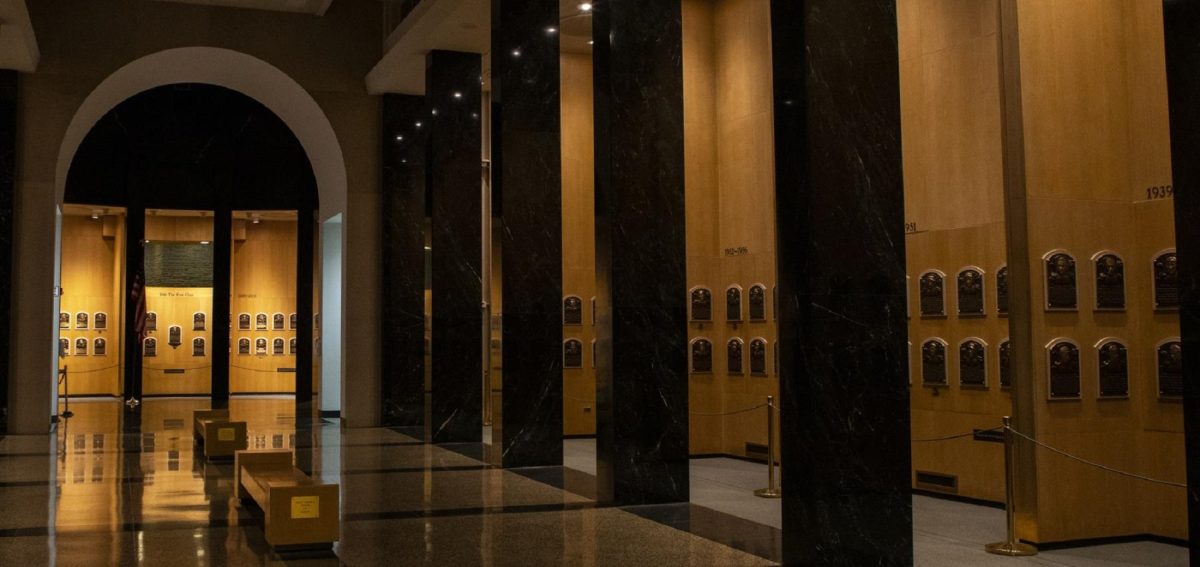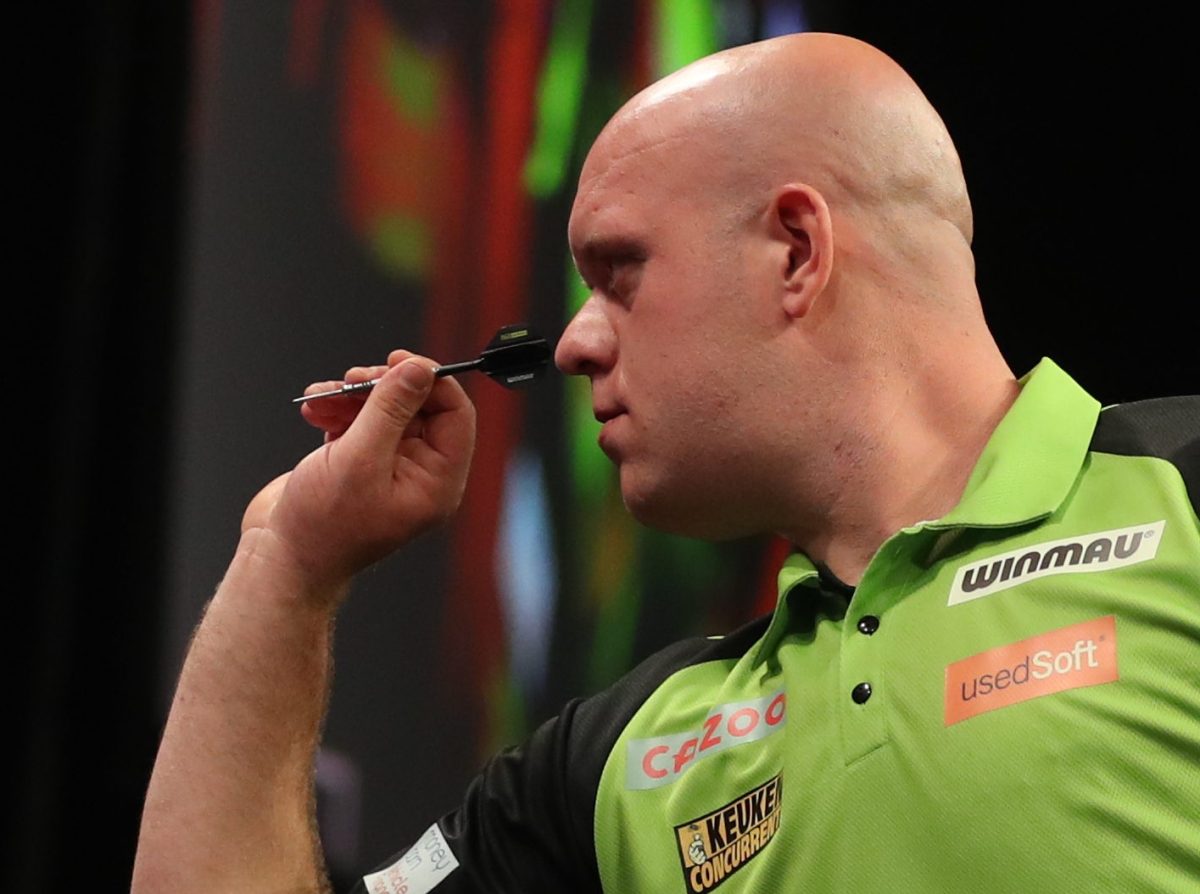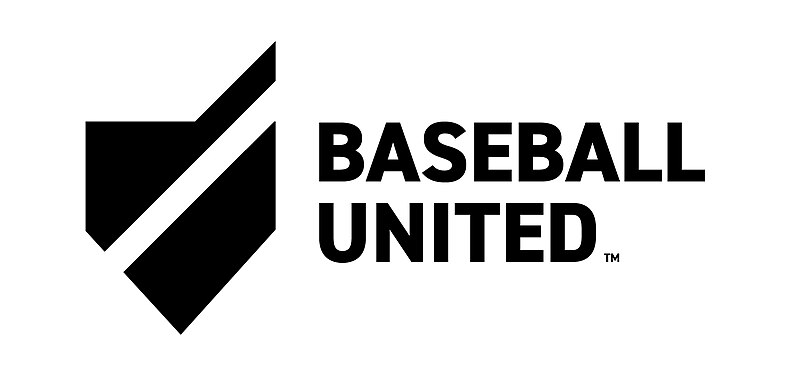This weekend, the Houston Texans and Tennessee Titans competed in one of the best games of this year’s NFL season. Houston quarterback Deshaun Watson had been putting on a show all game long. Then, when Houston lost the coin toss in overtime, Watson reeled his head back in anguish. His cleats never touched the field again, as Tennessee won in overtime.
This loss is just one instance of the NFL’s painfully flawed overtime rules that often allow the coin toss to decide games. As these rules stand, if one team scores a touchdown, the game ends, regardless of whether the other team had a chance on offense. This approach affects shootouts in which both teams are moving the ball with ease, as it is all but assured whoever wins the coin toss will score on their first possession.
Perhaps the most notable of these games in recent history is the 2019 AFC Championship. Featuring the 2018 AFC Champion New England Patriots and 2019 MVP Patrick Mahomes on the Kansas City Football Team, everyone knew the game would be high scoring. As the game wound down, the only thing the defenses could do was pray to slow the opposing offenses. Touchdowns were scored on the final four full possessions of the game. On the final possession, Kansas City kicked a field goal from the New England 21-yard line as time expired after driving 48 yards in just thirty seconds.
With both offenses scoring with ease, the game was bound to be decided on the overtime coin toss. Sure enough, New England won the coin toss and scored a touchdown, ending the game and advancing to Super Bowl LIII, where they would beat the Los Angeles Rams. Just like that, Mahomes’ season, one of the best in NFL history, was over, all because he called tails.
During the following offseason, Kansas City Head Coach Andy Reid unsuccessfully pushed to change the overtime rules to guarantee both teams a possession.
Even on the game’s biggest stage, the overtime rules have robbed teams of a fair chance to compete. In the 2017 Super Bowl LI, the infamous 28-3 game, New England overcame a 25 point deficit in the third quarter to send the game to overtime. Despite having absolutely zero momentum, the Atlanta Falcons still had league MVP, quarterback Matt Ryan, and arguably the best offense in the NFL. It’s hard to believe that after playing conservatively for the entire second half, offensive coordinator Kyle Shanahan could not have found a way to score a touchdown with his high-powered offense. Unfortunately, we will never know, as New England again won the coin toss and scored a touchdown, ending the game.
How is it possibly fair one team has the opportunity to end the game, deciding history, simply because they won something as arbitrary as a coin toss?
It is not impossible to create a better overtime in football, as the NCAA has superior overtime rules: Giving both teams a chance on both sides of the ball, its rules are more representative of who the better team is. Granted, they are not perfect, since the team that is on offense second still holds an advantage, but there is no way to make overtime completely fair. Teams alternate starting with the ball on their opponents’ 25-yard line. Whichever team scores the most points on their possession wins. If the scores on the two possessions are even, each team gets an additional possession. This process goes on indefinitely until one team outscores the other, which avoids another horrible pitfall of the NFL’s overtime rules: ties.
After competing for 70 minutes, including overtime, NFL games can anti-climatically end in ties if both teams fail to score or kick field goals on their first possession. Not only is this ending a disservice to the players and coaches who worked hard all week and during the game in hopes of a win, but it is flat-out boring for the fans. Compare these rules to college, where games can reach upwards of seven overtimes, as Texas A&M and LSU did in 2018, finishing the game 74-72, respectively. It is hard to fathom anyone seeing the NFL’s version of overtime as even remotely close in entertainment value.
Completely overhauling the NFL’s overtime rules to emulate the NCAA may be an unrealistic dream. The NFL must alter the current format, however, so both teams are guaranteed a possession. It is comically unfair to end a game solely because the team that won the coin toss was able to score a touchdown without letting the opposing offense even see the field. The league began to recognize this problem in 2012 when they changed the rules to require a touchdown to end the game as opposed to a field goal, but they must go a step further and guarantee both teams a possession.
Austin Barish is a sophomore in the College. The Armchair Analyst appears online every other week.


